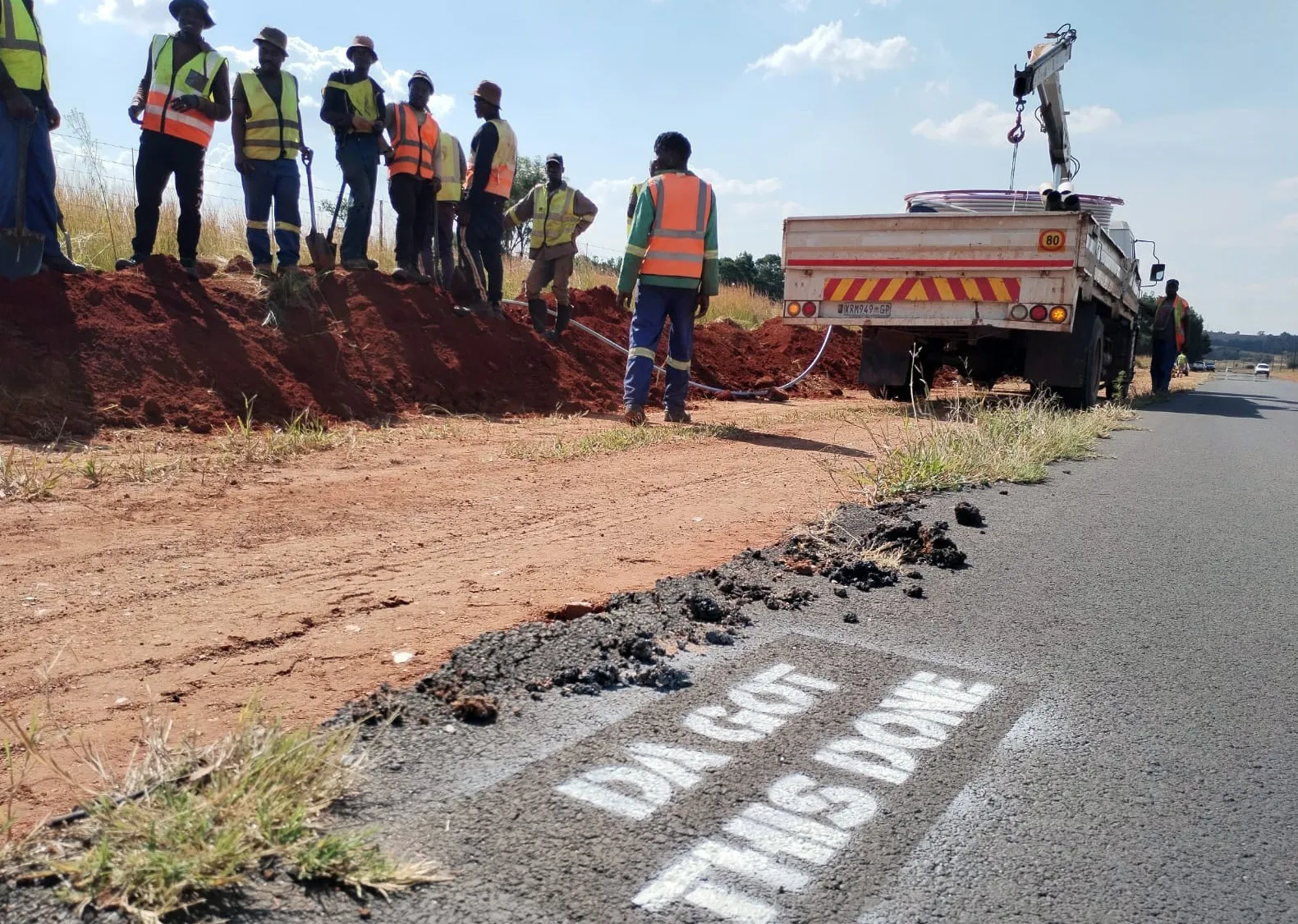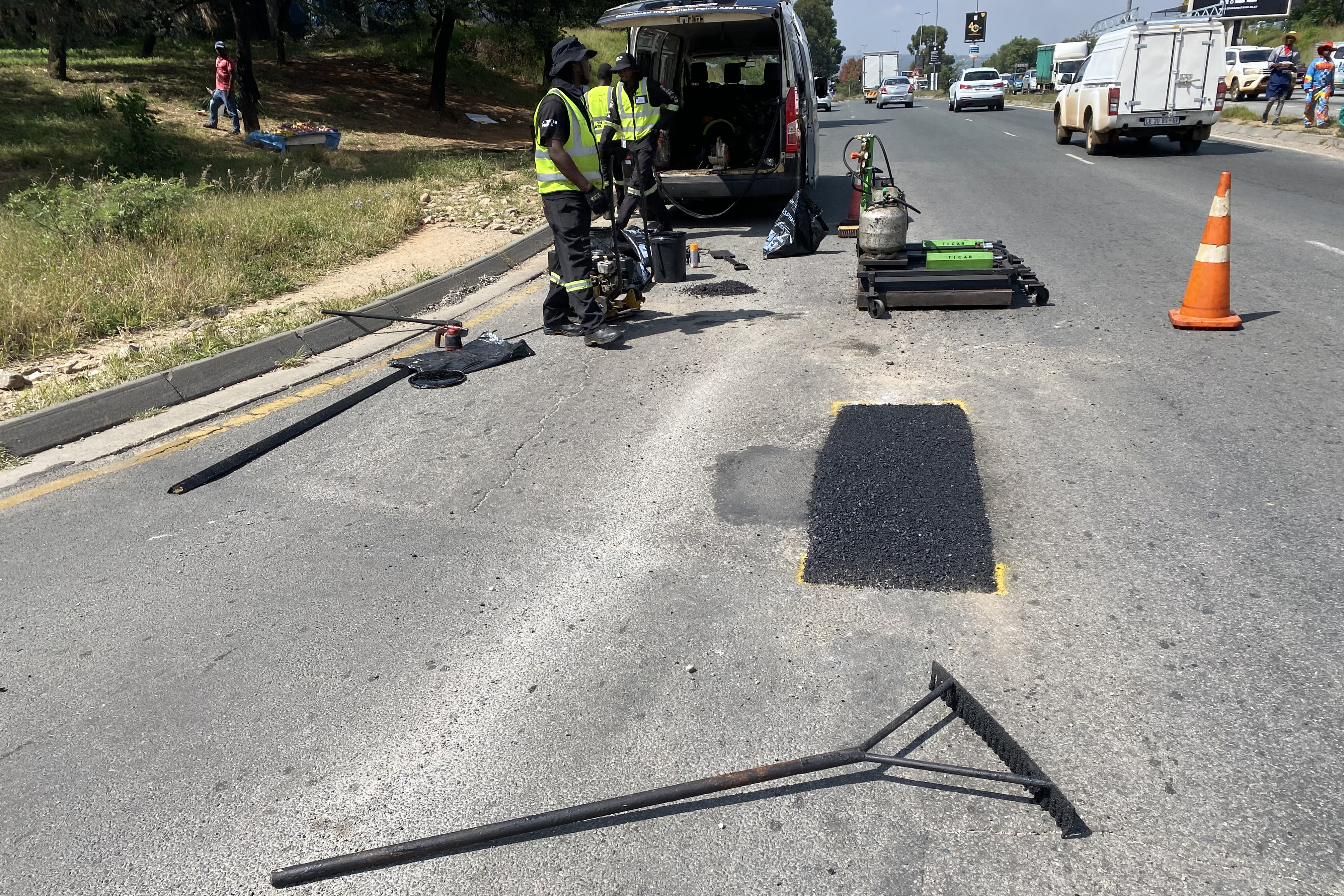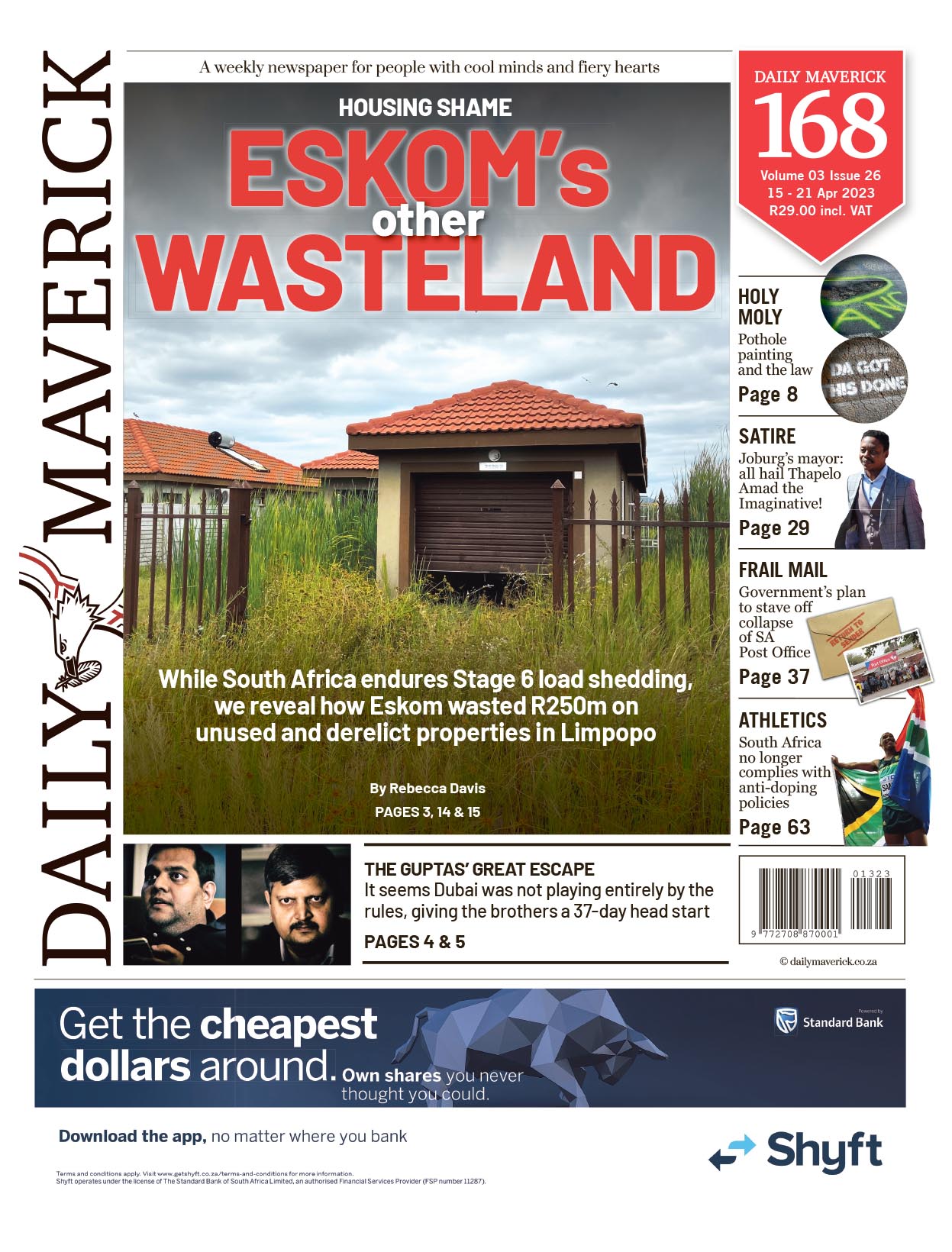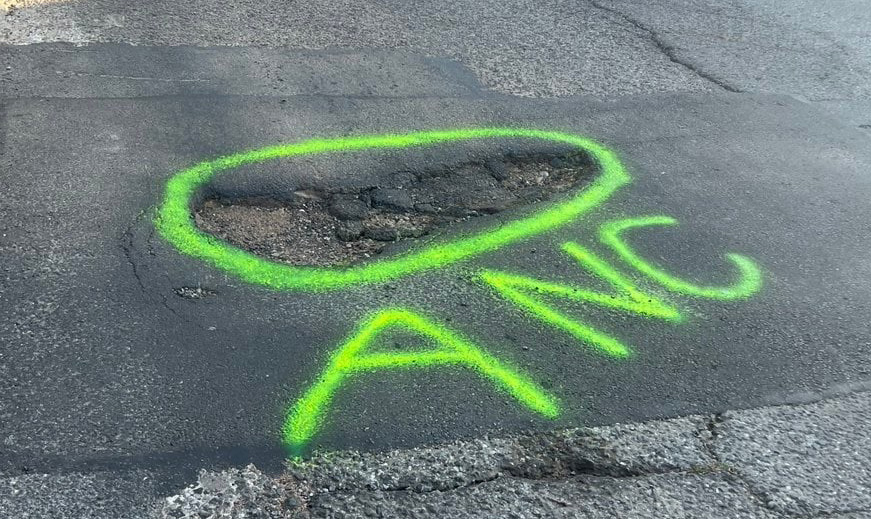Angry residents have been showing frustration at a lack of service delivery by tagging the ANC when they spray-paint bright colours around potholes to alert drivers to the danger.
This might even have worked in certain areas of Johannesburg as some potholes were fixed after pictures of the painted road surfaces were shared on social media. Other political parties, the DA in particular, have joined the unauthorised spray-painting of public roads in Tshwane – but it seems that most of them are not protesting but rather advertising their role in getting potholes fixed, using the tagline “DA GOT THIS DONE”.
 A DA member spray-paints a road after the pothole was fixed. (Photo: Supplied)
A DA member spray-paints a road after the pothole was fixed. (Photo: Supplied)
Daily Maverick reported in October 2022 that potholes in South Africa grew from 15 million to 25 million in just five years. The figures were revealed at the seventh South African Roads Federation (SARF) Regional Conference for Africa in Cape Town.
They have since been repeatedly quoted in media statements by the South African National Roads Agency (Sanral).
The mark of the Devil: pic.twitter.com/2AFLp8d4ah
— jv (@jvnaidoo1) February 22, 2023
Bad roads
The condition of the country’s roads had deteriorated to such an extent that, two years ago, leading insurance companies Dialdirect Insurance and Discovery Insure partnered with the Joburg Road Agency (JRA) in the Pothole Patrol. From then until March 2023, the Pothole Patrol filled 150,000 potholes in Johannesburg, it was announced.
The private sector has also been leaving its mark on roads – declaring in paint on the tarmac that repairs were made by a specific insurer, making it clear that the improvements are not courtesy of the government or local municipalities.
 Construction workers stand near a spray-painted pothole. (Photo: Supplied)
Construction workers stand near a spray-painted pothole. (Photo: Supplied)
Former transport minister Fikile Mbalula announced ambitious plans to eradicate potholes across the country when he launched Operation Vala Zonke. Sanral was appointed as the implementing agency and an app was launched for people to report potholes.
Although the intention of road marking is to put pressure on municipalities to fix eroded surfaces – and point a finger of blame at the ANC – strictly speaking, it is illegal.
Private companies fixing potholes and letting everyone know about it. Do it, don't stop.
Pothole Patrol App. pic.twitter.com/DRUmThfME9
— Stevan?? (@I_Am_Stevan) June 12, 2022
Everywhere in the country, from Cape Town to Tshwane, it is unlawful for a private citizen to create graffiti or make other marks on a road surface in terms of both municipal by-laws and the National Road Traffic Act.
Not that there have been any publicised instances of pothole graffiti on the roads of Cape Town – so far.
Cape Town Mayoral Committee Member for Urban Mobility Councillor Rob Quintas says: “One cannot compare the situation in Joburg with Cape Town, where we have a sound service delivery record.”
The Public Road By-laws for the City of Johannesburg Metropolitan Municipality, in Chapter 2:6 (9), state: “No person may in any way deface, mark or paint any public road or part of a public road or any structure related to such road, without the prior written permission of the Council.”
CEO of Discovery Insure Anton Ossip says the Pothole Patrol is mandated by the City of Joburg to repair potholes measuring a maximum size of 1m by 1m.
“We started branding our pothole repairs in 2021, so that we could track and monitor our repairs as part of our quality control and warranty identification measures.
“We use water-soluble marking paint for our branding, and this is so the branding disappears over time, in accordance with the agreement governing our permission to work on JRA’s assets, i.e. the roads.”
He added that the branding was formally approved by the City of Joburg and the JRA but, as a result of the recent unauthorised markings by other parties, new methods were being looked at.
“The branding of potholes also serves as a reminder to motorists to report any potholes which road users encounter via the Pothole Patrol app.” The City of Joburg says claims the municipality is struggling to maintain roads are ill-founded.
 Pothole fixers on Malibongwe Drive in Northriding. (Photo: Felix Dlangamandla)
Pothole fixers on Malibongwe Drive in Northriding. (Photo: Felix Dlangamandla)
“The City (JRA) is doing the best that it can to keep the City’s roads in great condition. It should be noted that the City (JRA) carries out the maintenance of roads while being confronted by external forces such as the vandalism and theft of roads infrastructure like traffic lights for copper cables, natural forces like heavy rainfalls and budgetary constraints,” it says.
The JRA adds that, since it started work on fixing the rainy season’s extensive flood damage, a total of 5,425.50 potholes have been fixed.
Jacqui Uys, caucus chair of the DA in the Tshwane council, commented: “Tshwane has endured weeks of political sabotage from those opposed to the multi-party coalition’s mission to get the City back on track through a fiscal recovery plan and a renewed focus on service delivery for all residents.
“Today, council will vote on a lifeline budget to accomplish this and reassure residents that the DA and our coalition partners in government are focused on the issues that affect the quality of life in Tshwane.
“This is what we are focused on.
“In a country where poverty, service delivery, and crime deny opportunities to people desperate for a better life, I don’t think a spray paint stencil on a repaired road somewhere is an urgent priority.” DM168
This story first appeared in our weekly Daily Maverick 168 newspaper, which is available countrywide for R25.





 Dial direct pothole patrol employees filling up hard at work on Malibongwe drive in northriding fixing potholes.Photo:Felix Dlangamandla
Dial direct pothole patrol employees filling up hard at work on Malibongwe drive in northriding fixing potholes.Photo:Felix Dlangamandla 